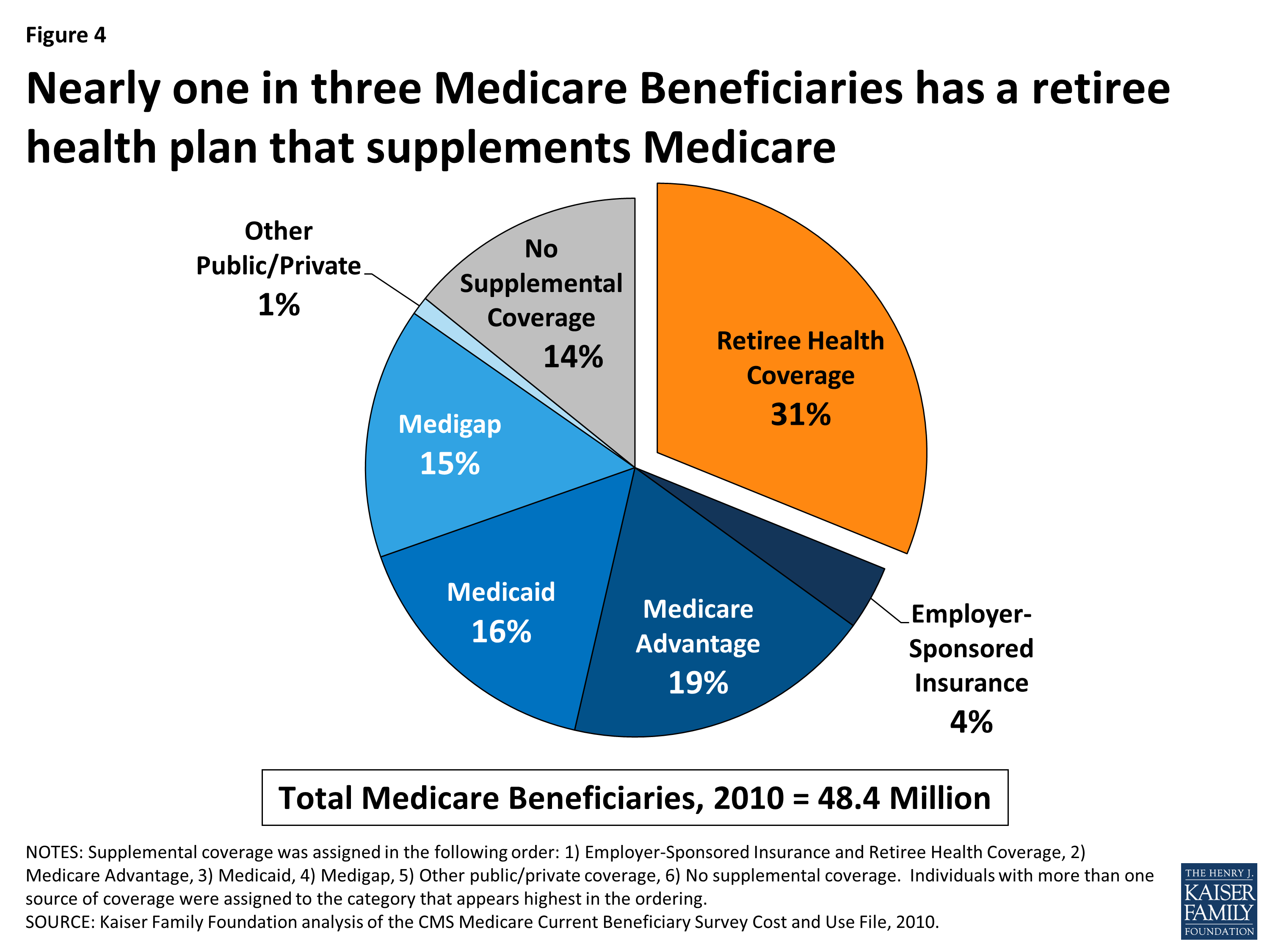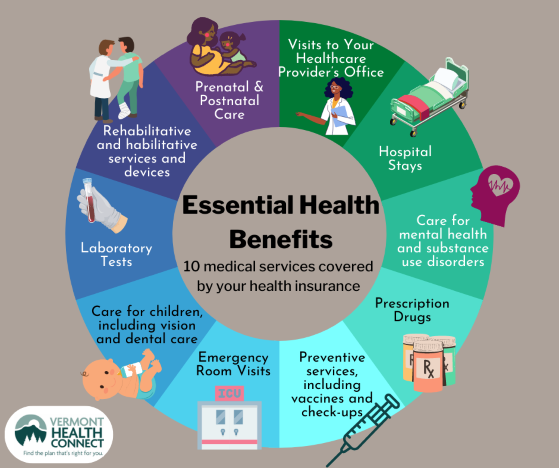About Medicare Advantage Agent
Indicators on Medicare Advantage Agent You Need To Know
Table of Contents7 Simple Techniques For Medicare Advantage AgentSome Known Incorrect Statements About Medicare Advantage Agent Some Known Details About Medicare Advantage Agent Getting My Medicare Advantage Agent To WorkThe Best Guide To Medicare Advantage AgentExcitement About Medicare Advantage AgentSome Known Questions About Medicare Advantage Agent.

Significant health problems can cost lot of times that. Wellness care coverage assists you get the treatment you need and secures you and your family members monetarily if you get ill or injured. You can obtain it with: Your work or your spouse's job, if the employer offers it. You need to fulfill eligibility requirements for government healthcare programs. For more info regarding federal government programs, browse through Benefits.gov. Discover more: Medical insurance: 5 things you may not understand See: Are you all of a sudden needing health insurance coverage? You can include your family to a work health and wellness strategy. If you acquire from an insurer or the marketplace, you can purchase
a strategy that also covers your household. They don't have to live at home, be signed up in college, or be asserted as a based on your tax return. You can keep married kids on your strategy, yet you can't add their spouses or kids to it. If you have dependent grandchildren, you can keep them on your plan up until they turn 25. You can buy at other times just if you shed your coverage or have a life change. Life modifications include things like getting married or
divorced, having a baby, or adopting a child. You can enroll in a work health insurance when you're first hired or have a major life change. They can't reject you protection or charge you more since of a pre-existing condition or special needs. The price relies on your conditions. You'll need to pay premiums and part of the cost of your treatment. A premium is a regular monthly charge you pay to have coverage. To determine your premium, insurance coverage companies will certainly think about: Your age. Whether you smoke or make use of cigarette. Whether the protection is for a single person or a family. They might rule out your gender or health variables, including your clinical history or whether you have a special needs. Premiums for individual strategies are secured for one year. Fees generally increase when the strategy is renewed to reflect your age and greater health treatment expenses. All health intends require you to.
pay several of the expense of your healthcare. This is called cost-sharing. In enhancement to premiums, you usually must fulfill an insurance deductible and pay copayments and coinsurance. A is the amount you have to pay before your strategy will certainly pay. As an example, if your insurance deductible is$ 1,000, your plan won't pay anything up until you have actually paid $1,000 yourself.
You'll also have a copayment if you go to the emergency situation area or see an expert. The quantities differ by plan. is an amount you spend for a covered service after you've satisfied your insurance deductible. It's usually a percentage of the price of the service. As an example, your health insurance might pay 80 % of the cost of a surgical treatment or healthcare facility stay.
The portion you pay in coinsurance differs by plan. Federal legislation establishes limits on the quantity you pay out of pocket in a plan year.
Everything about Medicare Advantage Agent

The four kinds are: HMO plans. Special service provider (EPO) strategies. Preferred copyright (PPO) strategies. Point-of-service plans. All four types are handled care plans. This suggests they agreement with doctors and other health care service providers to treat their click this site participants at affordable rates. These companies comprise a plan's network. Managed care plans restrict your choice of doctors or urge you to make use of doctors in their networks.
The plans vary in the extent to which you can utilize medical professionals outside the network and whether you must have a doctor to supervise your care. If you don't, you could have to pay the complete cost of your care yourself.
You'll also have a copayment if you go to the emergency space or see a professional. The quantities differ by strategy. is a quantity you pay for a covered service after you've met your deductible. It's usually a percentage of the cost of the service. For instance, your health insurance may pay 80 % of the cost of a surgery or healthcare facility remain.
Some Known Factual Statements About Medicare Advantage Agent
The percentage you pay in coinsurance differs by plan. You normally don't need to pay coinsurance in an HMO. Federal law establishes restrictions on the quantity you pay out of pocket in a plan year. Some plans have lower out-of-pocket limitations. After you get to the limitation, you don't have to pay copayments or coinsurance for the remainder of the strategy year.
A plan year is the 12-month duration from the date your protection started. For example, if your protection began on September 1, your strategy year lasts till August 31. Discover more: Just how to conserve cash at the physicianTreatment options and expenses There are four types of major clinical health and wellness strategies in Texas.
The 4 types are: HMO plans. Special company (EPO) plans. Preferred supplier (PPO) plans. Point-of-service strategies. All 4 types are taken care of treatment strategies. This means they contract with physicians and other healthcare service providers to treat their members at discounted rates. These carriers make up a strategy's network. Taken care of treatment strategies restrict your choice of doctors or urge you to make use of medical professionals in their networks.
The plans differ in the extent to which you can make use of physicians outside the network and whether you have to have a doctor to manage your care. You should utilize carriers in the HMO's network. If you do not, you might need to pay the full cost of your treatment yourself. There are exemptions for emergency situations and if you need treatment that isn't offered in the network.
An Unbiased View of Medicare Advantage Agent
You'll likewise have a copayment if you most likely to the emergency situation area or see a specialist. The amounts differ by strategy. is a quantity you pay for a covered service after you have actually satisfied your insurance deductible. It's typically a percent of the cost of the solution. Your wellness strategy could pay 80 % of the cost of a surgical treatment or health center keep.
The portion you pay in coinsurance varies by strategy. You normally do not have to pay coinsurance in an HMO. Federal regulation sets limits on the quantity you pay of pocket in a plan year. Some plans have reduced click out-of-pocket limits. After you reach the limit, you don't need to pay copayments or coinsurance for the rest of the strategy year.
A plan year is the 12-month period from the date your coverage started. There are 4 types of major clinical health strategies in Texas.
The 4 kinds are: HMO plans. Exclusive provider (EPO) plans. Preferred service provider (PPO) strategies. Point-of-service strategies. All 4 kinds are managed care plans. This means they contract with doctors and other healthcare carriers to treat their participants at discounted rates. These suppliers make up a strategy's network. Handled treatment strategies restrict your selection of doctors or motivate you to make use of medical professionals in their networks.
The 5-Minute Rule for Medicare Advantage Agent
The over here strategies vary in the degree to which you can use medical professionals outside the network and whether you should have a doctor to oversee your care. If you do not, you may have to pay the complete expense of your care yourself.
You'll also have a copayment if you go to the emergency clinic or see a specialist. The quantities vary by strategy. is an amount you pay for a protected solution after you've met your insurance deductible. It's generally a percent of the expense of the solution. As an example, your health insurance plan might pay 80 % of the price of a surgical procedure or healthcare facility remain.
The portion you pay in coinsurance differs by strategy. You typically don't have to pay coinsurance in an HMO. Federal regulation establishes limits on the amount you pay out of pocket in a plan year. Some plans have reduced out-of-pocket restrictions. After you get to the restriction, you don't have to pay copayments or coinsurance for the remainder of the plan year.
A plan year is the 12-month period from the date your protection started. If your protection began on September 1, your strategy year lasts till August 31. Find out more: How to conserve money at the medical professional Treatment choices and costs There are four kinds of significant medical health insurance plan in Texas.
All About Medicare Advantage Agent
The four types are: HMO plans. Exclusive supplier (EPO) plans. Preferred company (PPO) plans. Point-of-service plans. All 4 types are managed care strategies. This means they agreement with physicians and other healthcare suppliers to treat their members at affordable rates. These providers compose a plan's network. Handled treatment strategies limit your option of medical professionals or motivate you to utilize medical professionals in their networks.
The plans vary in the level to which you can make use of doctors outside the network and whether you must have a physician to supervise your care. You need to use carriers in the HMO's network. If you do not, you could need to pay the complete expense of your treatment on your own. There are exemptions for emergency situations and if you need care that isn't available in the network.